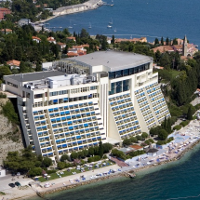26th International Electrotechnical and Computer Science Conference ERK 2017
The ERK 2017 conference will be held on September 25-26, 2017 in Congress Center Bernardin, Portorož, Slovenia. The conference is organized by the IEEE Slovenia Section together with Faculty of Electrical Engineering University of Ljubljana and other Slovenian professional societies. The Conference is bilingual, with presentations in English and Slovenian.
Conference Proceedings
Online proceedings, to access papers enter password: erk17
| EL - Electronics | CS - Computer Science |
| TC - Telecommunications | MM - Multimedia |
| AR - Control Systems and Robotics | PR - Pattern Recognition |
| SM - Modeling and Simulation | BM - Biomedical Engineering |
| ME - Power Engineering | DI - Didactics |
| MT - Measurement | ST - Student Papers |
Registration is on the conference desk (Congress center, Ground floor) every day during the conference. The desk is open from 8h30 in the morning.
Šestindvajseta mednarodna Elektrotehniška in računalniška konferenca ERK 2017
Konferenca bo potekala v kongresnem centru Bernardin v Portorožu.
Na konferenci bo od 25. do 26. septembra 2017 poleg rednih sekcij bogat vzporedni strokovni program, zato Vas vzpodbujamo, da si vzamete čas in se v tej atmosferi informirate in pogovorite o novostih, trendih in možnosti razvoja naše stroke na specifičnih področjih, za katere in od katerih živite. Vabljena, pregledna in poučna predavanja bodo dopolnjevala osnovni program konference, kjer bodo raziskovalci poročali o svojih dosežkih pred kritičnim strokovnim forumom udeležencev. Delovna jezika sta slovenski, ker se negovanju slovenske tehniške besede ne moremo odpovedati, in angleški, s čimer vabimo vedno več udeležencev iz tujine.
Program konference
Konferenco organizira Slovenska sekcija IEEE v sodelovanju s Fakulteto za elektrotehniko Univerze v Ljubljani in drugimi strokovnimi društvi. Članek naj obsega 4 strani in je napisan v slovenščini ali angleščini, vendar od avtorjem pričakujemo, da bodo v istem jeziku članek predstavili tudi na konferenci!
Vabilo na Tekmovanje študentskih prispevkov 2017 Slovenske sekcije IEEE.
Registracija udeležencev poteka na recepciji konference (pritličje GH Bernardin) vsak dan v času konference. Recepcija je odprta od 8h30 zjutraj.
Urnik / Schedule

Program in zbornik ERK 2017 je na strani: http://erk.fe.uni-lj.si/2017/, za dostop do prispevkov vnesite geslo: erk17
Dogodki / Events
Ponedeljek / Monday 25.9.2017
- 13h - Študentsko tekmovanje / Student Competition
- 18h - Otvoritev / Opening ceremony
- 20h - Konferenčna večerja / Conference Dinner
Torek / Tuesday 26.9.2017
- 9h - DD1: sestanek ARCADIA / ARCADIA Meeting
- 12h - Kosilo / Lunch
Vabljeni predavatelji / Invited Speakers
Griša Močnik
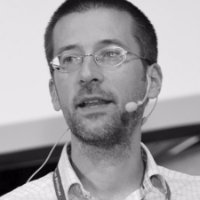
VP.1 Black Carbon: a local, regional and global pollutant influencing air quality and climate
Assistant Professor Griša Močnik, PhD, is the director of research and development of Aerosol d.o.o. – the producer of the Aethalometer, the instrument for measurement of black carbon. He received his doctorate from the University of Ljubljana while working at “Jožef Stefan Institute”, and universities and institutes in the Netherlands, France and Germany, where he performed research on photothermal and photoacoustic methods for investigation of highly absorbing and scattering samples. Before that he studied physics at the University of Ljubljana.
Griša Močnik has been a principal investigator, researcher and scientific advisor in numerous development and research projects in the field of aerosol instrumentation and laser devices. His work is mostly focused on the development of filter based instrumentation for research of aerosol optical properties and application of this instrumentation – in particular measurement of black carbon and other light absorbing carbonaceous aerosols. His current research includes source apportionment of carbonaceous aerosol for local studies and in context of long range transport; vertical profiles of primary combustion products; and methods for emission measurements. He served as a member of the United Nations ECE expert group on Black Carbon.
Dejan Vukobratović
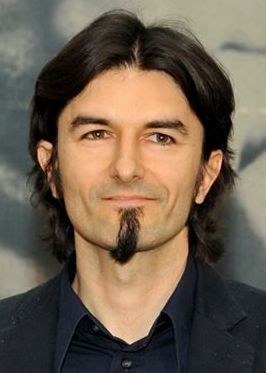
VP.2 Internet of Things in 5G: From massive machine-type communications to large-scale information processing
Dejan Vukobratovic received the Dr.-Ing. degree in electrical engineering from the University of Novi Sad, Serbia, in 2008. Since 2009. he has been an Assistant Professor, and since 2014, an Associate Professor with the Department of Power, Electronic and Communications Engineering, University of Novi Sad. From June 2009 until December 2010, he was a Marie Curie Intra-European Fellow at the University of Strathclyde, Glasgow, UK. From 2011 to 2014, his research was supported by the Marie Curie European Reintegration Grant. His research group participates in FP7 QoSTREAM and FP7 ADVANTAGE EU funded projects. He has co-authored over 80 research papers published in top-tier IEEE journals and conferences. His research interests span modern coding theory: sparse-graph codes, iterative decoding, rateless and network coding, and applications of related concepts in multimedia communications and wireless mobile cellular networks.
Huimin Lu

VP.3 Extreme Optical Imaging for Deep-sea Observing Network
Huimin Lu received a B.S. degree in Electronics Information Science and Technology from Yangzhou University in 2008. He received M.S. degrees in Electrical Engineering from Kyushu Institute of Technology and Yangzhou University in 2011. He received a Ph.D. degree in Electrical Engineering from Kyushu Institute of Technology in 2014. From 2013 to 2016, he was a JSPS research fellow at Kyushu Institute of Technology. Currently, he is an Assistant Professor in Kyushu Institute of Technology and serves as an excellent young researcher of Ministry of Education, Culture, Sports, Science and Technology, JAPAN. His research interests include computer vision, robotics, artificial intelligence, and ocean observing.
Gabriele Neretti
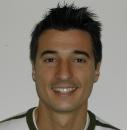
VP.4 A high voltage high frequency multilevel supply system for the generation of non-thermal plasmas
Gabriele Neretti was born in Castel San Pietro Terme, Italy, in 1980. He received the M.S. and Ph.D. degree in electrical engineering from the University of Bologna, Bologna, Italy, in 2005 and 2009 respectively. Since December 2011, he is a Researcher with the Electrical Electronic and Information Engineering Department, University of Bologna. His research interests include principally technological applications of weakly ionized gases and non-thermal plasmas. In the aerospace and aeronautical domains the main research activities are related to the study of the MHD interaction in weakly ionized plasma, and the EHD interaction generated by a dielectric barrier discharge for boundary layer flow control respectively. In the plasma-tissue-engineering field he is working on the surface treatment of bio-compatible scuffled, for cell adhesion improvement, by using DBD plasmas. This plasma typology is also used for the abatement of air pollutants, as VOCs, and the sterilization of parasites as oocytes. Since 2011 he is lecturer of Electrical Engineering for the Course of Information Engineering.
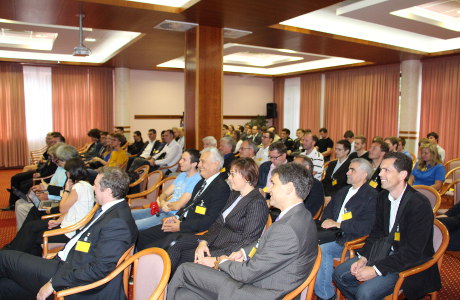
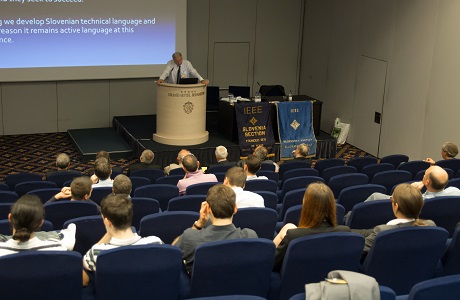
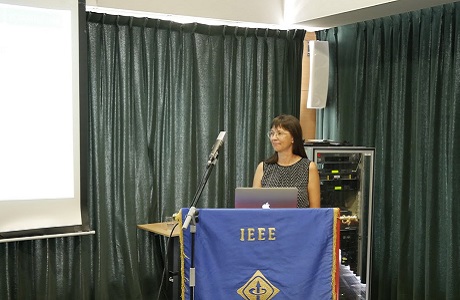
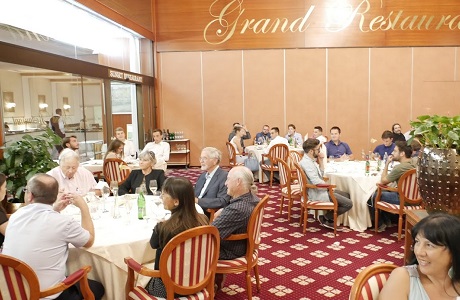
 IEEE Slovenija
IEEE Slovenija